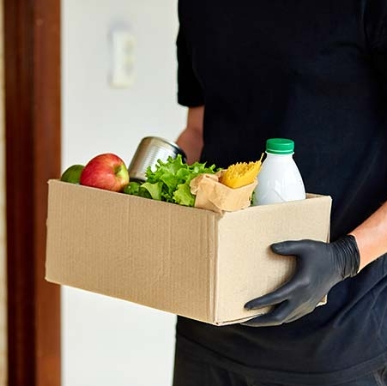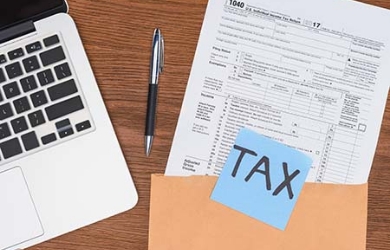Food Recovery & Donation Requirements


LARGE EDIBLE FOOD GENERATORS ARE REQUIRED TO DONATE EXCESS EDIBLE FOOD TO FOOD RECOVERY ORGANIZATIONS WHO WILL REDISTRIBUTE THE FOOD TO FEED FOOD INSECURE PEOPLE.
- Must have a contract or written agreement with food recovery service(s) or organization(s) to pick up or receive edible food.
- Must keep records indicating the types of food being donated, pounds donated per month, frequency of donations, and the contact information of the contracted food recovery service(s) and/or organization(s).
- Food generating businesses shall not intentionally spoil or discard food that can be donated.
- Large venues or event operators that allow food facilities to provide food services shall require food facilities to follow the food recovery and donation requirements above.


HELP FIGHT HUNGER
Each year, Los Angeles County unincorporated communities toss approximately 256,000,000 pounds of food into the trash. The County has partnered with local charities to offer businesses a food donation option through Food DROP (FoodDROPLA.com).
The mission of Food DROP is to provide resources for businesses operating in the County unincorporated communities to safely donate their excess edible food to help fight hunger in Los Angeles County and divert food waste from the landfills.


TAX DEDUCTIBLE
All businesses who donate to a 501(c)(3) non-profit organization that uses the food for the care of the ill, the needy, or infants can receive an enhanced tax deduction.
Required Timeline For Edible Food Generators By Type
Edible Food Generators are split into two tiers, based upon volumes generated, and must arrange to recover the maximum amount of their edible food that would otherwise be landfilled.
TIER ONE
COMMERCIAL ENTITIES REQUIRED TO COMPLY AS OF
JANUARY 1, 2022
- Supermarkets
- Grocery stores (with a total facility size ≥ 10,000 sq.ft.)
- Food service providers (contracted)
- Food distributors
- Wholesale food vendors
TIER TWO
COMMERCIAL ENTITIES REQUIRED TO COMPLY AS OF
JANUARY 1, 2024
- Restaurants (with ≥ 250 seats, or ≥ 5,000 sq. ft.)
- Hotels (with an on-site food facility and ≥ 200 rooms)
- Health facilities (with an on-site food facility and ≥ 100 beds)
- Large venues
- Large events
- State agencies (with a cafeteria with ≥ 250 seats, or ≥ 5,000 sq. ft.)
- Local education agencies (with an on-site food facility)
Frequently Asked Questions
Food recovery organizations (such as food banks, food pantries, shelters etc.) redistribute edible donated food to food insecure individuals and families to fight hunger.
Visit FoodDROPLA.com to find a list of food recovery organizations near you that accept the type of food you plan to donate. You can also post the type of food you would like to donate on Careit for food recovery services to pick up. Once you create the relationship with food recovery organizations to donate food regularly, you should obtain a written agreement and keep your food donation records (donation receipts) for compliance monitoring purpose.
The Agreement is intended to assist large food generators and food recovery organizations in participating in continuous donations as well as complying with the State regulations.
Yes, the County encourages food waste reduction and edible food donation whenever possible. Donation excess edible food will also help your business to effectively reduce your food waste.
Yes, both large food generating business donating edible food and the food recovery agencies receiving the food donations should maintain a food donation record that includes donation date(s) and food donation amounts as part of the record keeping requirements.
To comply with state regulations, a large food generating business should:
- Establish written agreement(s) with food recovery agencies to set up regular food donations.
- Maintain contact of food recovery agencies and types of food accepted by the agencies.
- Record quantity of food donated in pounds per month.
Food service providers must donate food to a food recovery organization such as a food bank, take measures to prevent food waste, and subscribe to organic waste collection service or self-manage organic waste by self-hauling or managing on-site such as through composting.
No. The Bill Emerson Good Samaritan Food Donation ActPDF download protects donors from liability and encourages the donation of suitable food and grocery products to nonprofit organizations for distribution to needy individuals.
CAN’T FIND WHAT YOU’RE LOOKING FOR?
For specific information about how organic waste is being managed in your community, contact your waste hauler. If you live in an unincorporated area, you may also call Los Angeles County Public Works staff at (888) 253-2652 from 7 a.m. – 5 p.m., Monday through Thursday. We also encourage you to check back to this website for additional updates.
*ADA and Title VI Accommodations: Individuals requiring reasonable accommodations, interpretation services, and materials in other languages or in an alternate format may contact Los Angeles County Public Works at (626) 458-5100. Requests will be processed within 7 days. Individuals with hearing or speech impairment may use California Relay Service 711.